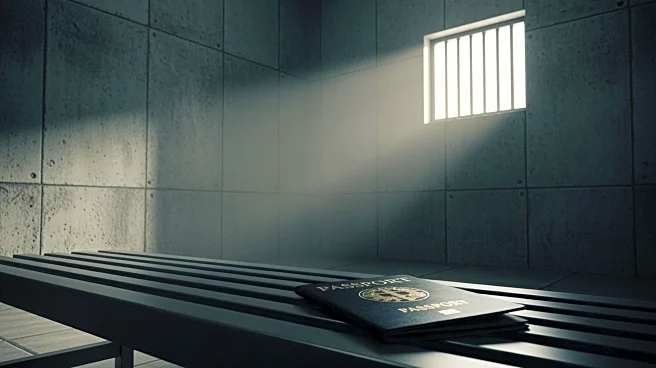What's Happening?
Kamran Hekmati, a 70-year-old Iranian-American and Jewish man, has been imprisoned in Iran for visiting Israel 13 years ago for his son's bar mitzvah. Hekmati, who is suffering from bladder cancer, is currently detained in Tehran's Evin Prison. His family,
concerned about his health, has filed an appeal. The United States lacks a diplomatic presence in Iran, and Switzerland, which represents U.S. interests there, has not been granted access to Hekmati. U.S. Representative Tom Suozzi has urged the State Department to work towards Hekmati's release on humanitarian grounds. Hekmati was arrested in July, around the time of the Twelve Day War between Israel and Iran, and sentenced to four years in prison under a law prohibiting Iranian passport holders from traveling to Israel. His sentence was later reduced to two years.
Why It's Important?
The imprisonment of Kamran Hekmati highlights the complex diplomatic challenges faced by U.S. citizens in Iran, particularly those with dual nationality. The case underscores the risks associated with travel to Iran for individuals with U.S. connections, as the State Department has warned of potential questioning, arrest, and detention. The situation also reflects ongoing tensions between Iran and the U.S., exacerbated by historical and political conflicts. The lack of diplomatic access further complicates efforts to secure Hekmati's release, raising concerns about human rights and the treatment of foreign nationals in Iran. The case has drawn attention from U.S. lawmakers and the Persian Jewish community, emphasizing the need for diplomatic solutions and humanitarian considerations.
What's Next?
The appeal filed by Hekmati's family is pending, and efforts to secure his release continue. U.S. Representative Tom Suozzi has called for urgent action from the State Department, which may involve diplomatic negotiations or pressure on Iran through international channels. The case could prompt further discussions on the treatment of dual nationals and the role of diplomatic representation in countries with strained relations. Advocacy from civil society groups and international human rights organizations may increase, seeking to highlight the broader implications of Hekmati's imprisonment and similar cases.
















